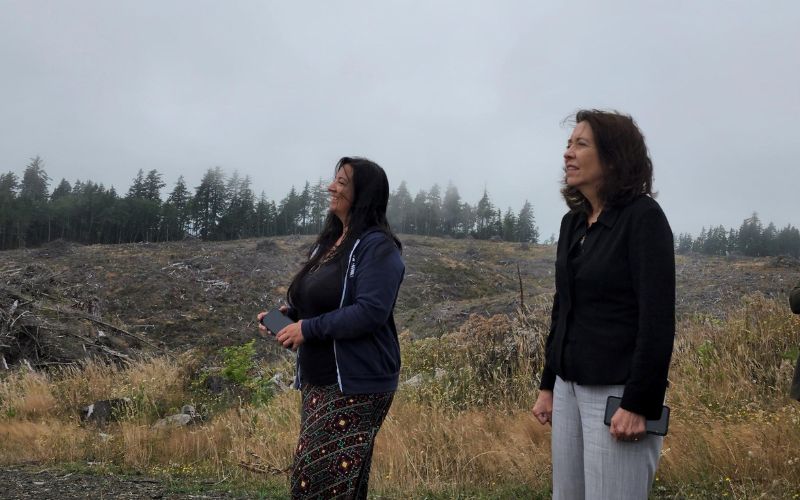
- Details
- By Native News Online Staff
The Shoalwater Bay Indian Tribe of coastal Washington is moving its infrastructure to higher grounds to escape rising sea levels, thanks to a $1.2 million grant from the Department of Commerce announced this week.
The project is funded by the Disaster Relief Supplemental Appropriations Act of 2023, which provided the Department of Commerce with $483 million to award to areas vulnerable to hurricanes, wildfires, flooding, and other natural disasters.
“Located on the coast of the Pacific Ocean, sea-level rise is causing the Shoalwater Bay Tribe’s low-lying land to disappear,” said U.S. Senator Maria Cantwell (D-WA) in a statement, chair of the Senate Committee on Commerce, Science, and Transportation. “This investment in the Tribe’s Master Relocation Plan brings the Shoalwater Bay community one-step closer to moving their vital community facilities out of harm’s way and up to higher ground.”
This new project is one of many the tribe has taken on to make its land and structures more resilient to climate change: In August 2022, the tribe built the first tsunami vertical evacuation tower in North America. The tower can accommodate over 400 people and would reduce the amount of time it would take to evacuate from the end of the 3-mile-long Tokeland Peninsula in the event of a tsunami.
In June 2023, Sen. Cantwell helped the tribe secure nearly $25 million for the Upland Village Relocation Road Project.
“The Shoalwater Bay Indian Tribe is at a critical juncture in their reservation expansion and climate resiliency efforts,” said Sen. Cantwell at the time. “This funding will construct a roadway with the necessary utility infrastructure, allowing the Tribe to relocate critical infrastructure while preserving their cultural growth and economic success.”
More Stories Like This
Gwich'in Tribal Governments Submit Comments Challenging Fish and Wildlife Service's Inadequate Environmental Review of Arctic Refuge Snow RoadRappahannock Tribe Challenges 9M-Gallon Water Plan
Feds release draft long-term plans for Colorado River management
Apache Leader Walks 60 Miles to Court Hearing That Will Decide Fate of Sacred Oak Flat
Rappahannock Tribe Raises Sovereignty and Environmental Concerns Over Caroline County Water Permit
Help us defend tribal sovereignty.
At Native News Online, our mission is rooted in telling the stories that strengthen sovereignty and uplift Indigenous voices — not just at year’s end, but every single day.
Because of your generosity last year, we were able to keep our reporters on the ground in tribal communities, at national gatherings and in the halls of Congress — covering the issues that matter most to Indian Country: sovereignty, culture, education, health and economic opportunity.
That support sustained us through a tough year in 2025. Now, as we look to the year ahead, we need your help right now to ensure warrior journalism remains strong — reporting that defends tribal sovereignty, amplifies Native truth, and holds power accountable.
 The stakes couldn't be higher. Your support keeps Native voices heard, Native stories told and Native sovereignty defended.
The stakes couldn't be higher. Your support keeps Native voices heard, Native stories told and Native sovereignty defended.
Stand with Warrior Journalism today.
Levi Rickert (Potawatomi), Editor & Publisher

